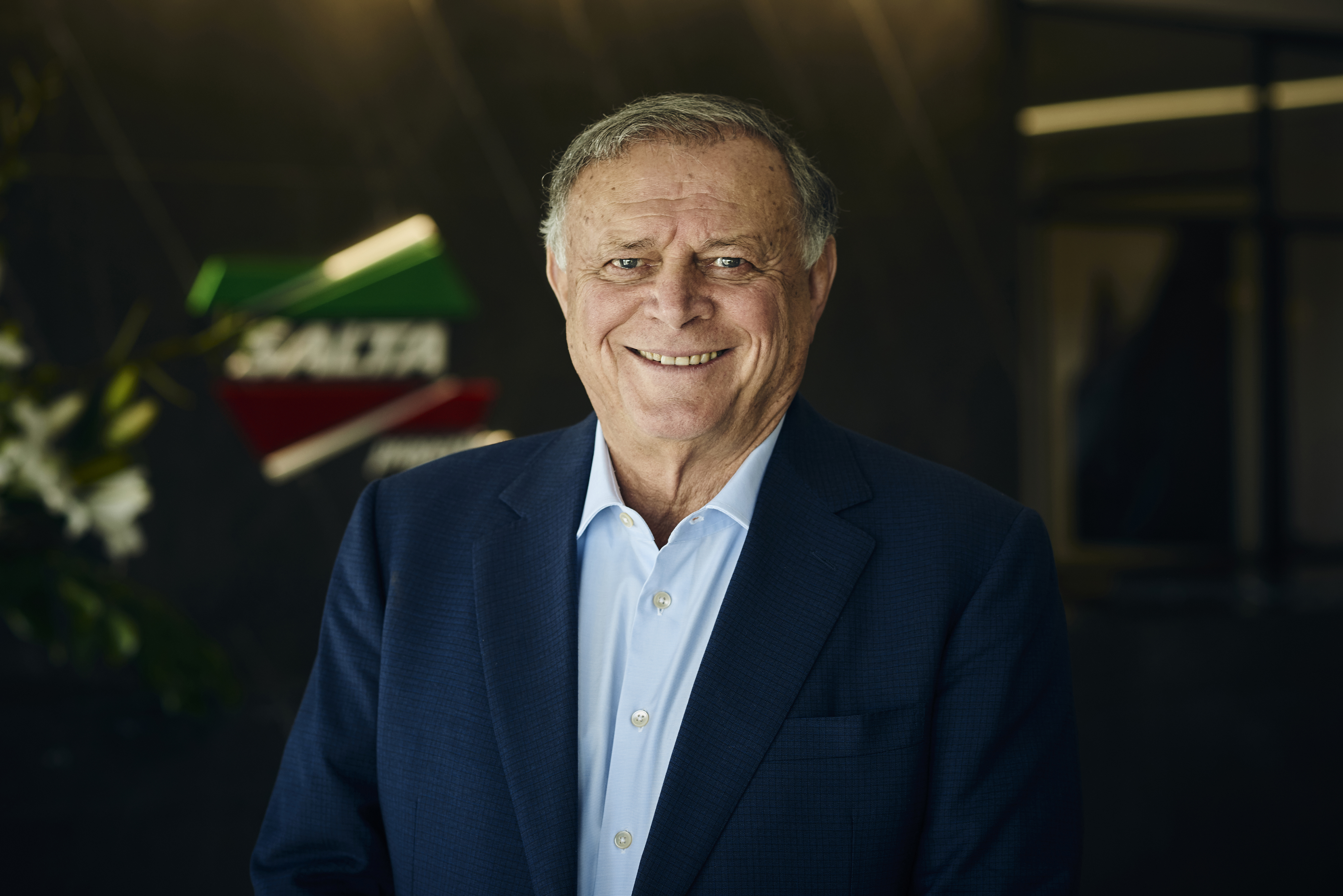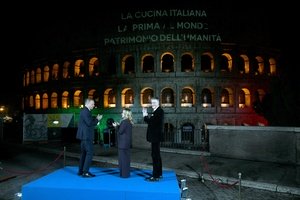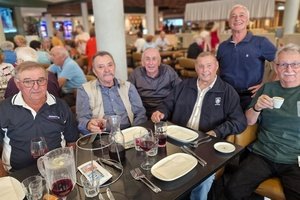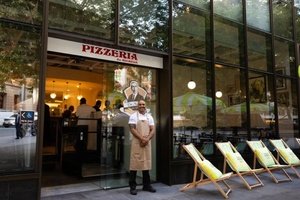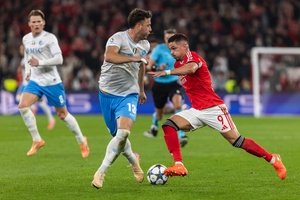At almost 76, Salvatore Tarascio, or Sam, as he likes to be called, is among the richest men in Australia, with a fortune that now exceeds $1.1 billion, as indicated by Forbes magazine in 2019.
The idea that animates his life, that guides his projects, that accompanies him every day from the top of his elegant office in Collins Street, in Melbourne, is the image of a ship full of opportunities that docks at the port of our lives once and once only.
It’s up to us to have the ability to step aboard and sail away.
Today Tarascio presides over one of the largest private Australian companies, Salta Properties, founded in 1970, and the days are long gone when, at the age of five, he left Vizzini, in Sicily, with his mother Maria and his brother Rosario to reunite with his father, Giuseppe Tarascio, who had arrived on the new continent a year earlier, in September 1949.
Every difficulty was left behind in order to encounter different ones: living with two other families in a 12-square-metre house on Watson Street, in Werribee, and surviving in a new reality without understanding its culture and language.
He soon discovered that the dangers of migration extended far beyond the arduous ocean voyage.
There was so much to learn, inside and outside the classroom, and within the unknown community.
Refusal, isolation, being observed with suspicion: everything was part of the migrant experience and during the school years, like many Italo-Australians, he was constantly rejected.
Yet it is in this difficult reality that he decided to learn and get closer to the world of his peers.
In 2018, Sam Tarascio published his autobiography My Way, which gently claws at the heart of every migrant.
Whilst today it may be easier to feel the warmth of your land even from miles away, as an Italian living in Australia for some years now, I perceived a sense of nostalgia deep within the pages of Sam’s book, yet also a strength of character and ability to survive during his formative years.
“My first day at school as a five-year-old migrant was a horrifying experience,” Tarascio writes.
“Enrolled in St Joseph’s Primary School in Werribee and placed in a class, I was totally shunned and looked on as an alien from outer space. Without a word of English, I was unable to communicate my needs.
“That caused me to tremble in fear, so much so that by the first recess, being unable to ask to go to the toilet, I did not get there in time and suffered the indignity of the obvious mishap.
“Embarrassed and shaking, I left the school grounds and ran the six or so miles home, hiding for the rest of the day. The next day, refusing to go to school, I stayed home with my brother and my younger cousins.
“It took a lot convincing to get me to go back to school. Had it not been for another student who had shown some friendship and lived close by, I would have been a total outcast.”
Soon the Tarascio family moved to Altona and the years of a young Sam needing to hide in the schoolyard to eat his typical Italian lunch – salame, arancini, melanzane fritte - and not being mocked by his classmates became a distant memory.
Dreams and determination progressed slowly, but above all an innate drive towards gaining his own financial independence.
“I came up with a scheme to earn my own pocket money, which would enable me to buy myself a Coke or an ice-cream.
“An alcoholic, who worked part-time and would spend all his money on grog, often sat on the corner of our street getting drunker by the hour.
“One Saturday morning I took six beer bottles with intact labels from the pile we kept at home for sauce, filled them with water, capped them the same way I had watched my father cap the sauce bottles and, to my delight, produced what looked like full bottles of beer.
“All I had to do was approach the alcoholic and negotiate a deal whereby he could pay half the retail value of the beer.
“On the afternoon, after he tasted the contents, he stormed down to our house, yelling loudly, and making a general commotion.
“My body was trembling as I sought refuge under the bed.
“Not only was it in my own interest to hide from my first-ever customer, I also needed to avoid my parents.
“They would surely have called me to translate what the irate man was saying.
“From under the bed I listened intently, and could understand the threats, along with my parents’ confusion.
“Eventually, and much to my relief, the barrage ended, and the alcoholic left. It was a relief that my parents never found out what their eldest son had done.”
In 1959, Williamstown Technical School started a soccer team: Tarascio did not miss the opportunity and began his football career as a goalkeeper who counted successes and victories and ended ten years later with a move to Adelaide, in South Australia, to play with Juventus.
At the age of 24, however, determined to start a private business, he prepared to return to Melbourne.
This is how his life suddenly took a new path when Tarascio decided to buy some land in Altona.
Entrepreneurial skills seemed hereditary: his grandfather Salvatore had been one of the most avant-garde men in Sicily, giving life to Vizzini’s first cinema, to a salt wholesale business - hence the name “I Salari” attributed to the family - and bringing the town its first olive press for producing olive oil.
His father Giuseppe, after settling in Australia, bought a second-hand tip truck and opened a sand screening and cement supplies business from his backyard.
“I suppose, yes, the entrepreneurial capacities are familial but I really don’t know what makes an entrepreneur and what doesn’t.
“What I do know is that ‘need’ and ‘want’ are very strong drivers so, as migrants, when we came out to Australia, we had a need for everything and we wanted everything because literally we had nothing, so that’s a very strong driver.
“If that’s the terminology, I think I’m someone who always looked to do business and took risks.
“If ‘entrepreneur’ is the term, call me entrepreneur then. It’s just a definition.”
And the risk came when he discovered that the pharmaceutical company Hoechst, for whom he was working as a sales representative, was looking for a new warehouse: “I don’t believe in people saying ‘I can’t do that’.
“You can do anything you want in your life and there is a basic principle to how you do it.
“I found a person who put that project in place, because I wasn’t a builder.
“I used reverse psychology and by asking questions they thought that I was questioning their methodology and efficiency, and they explained to me why they were doing it in that way”.
By the end of 1971, the building was finally finished.
Tarascio had officially entered the business world with Westgate Logistics and Salta Properties.
Today he still describes the ability to convince Hoechst to trust a young man without any expertise as the greatest professional achievement of his life, but over the years he has managed to obtain other extraordinary successes, of a different nature: he married the love of his life, Christine, who gave birth to Sam, David and Lisa.
After 50 years in the challenging building industry, and after the sale of Westgate Logistics in 2007, a choice that the entrepreneur regrets - “It was like cutting my arm off”, he says - Tarascio is now focusing on the projects he prefers.
I meet him in his office in the heart of Melbourne, from whose large windows you can admire the whole city, and he tells me that important decisions have yet to obtain his approval, even if his son Sam is the project manager of the company, while David is the chief executive officer of Salta Capital.
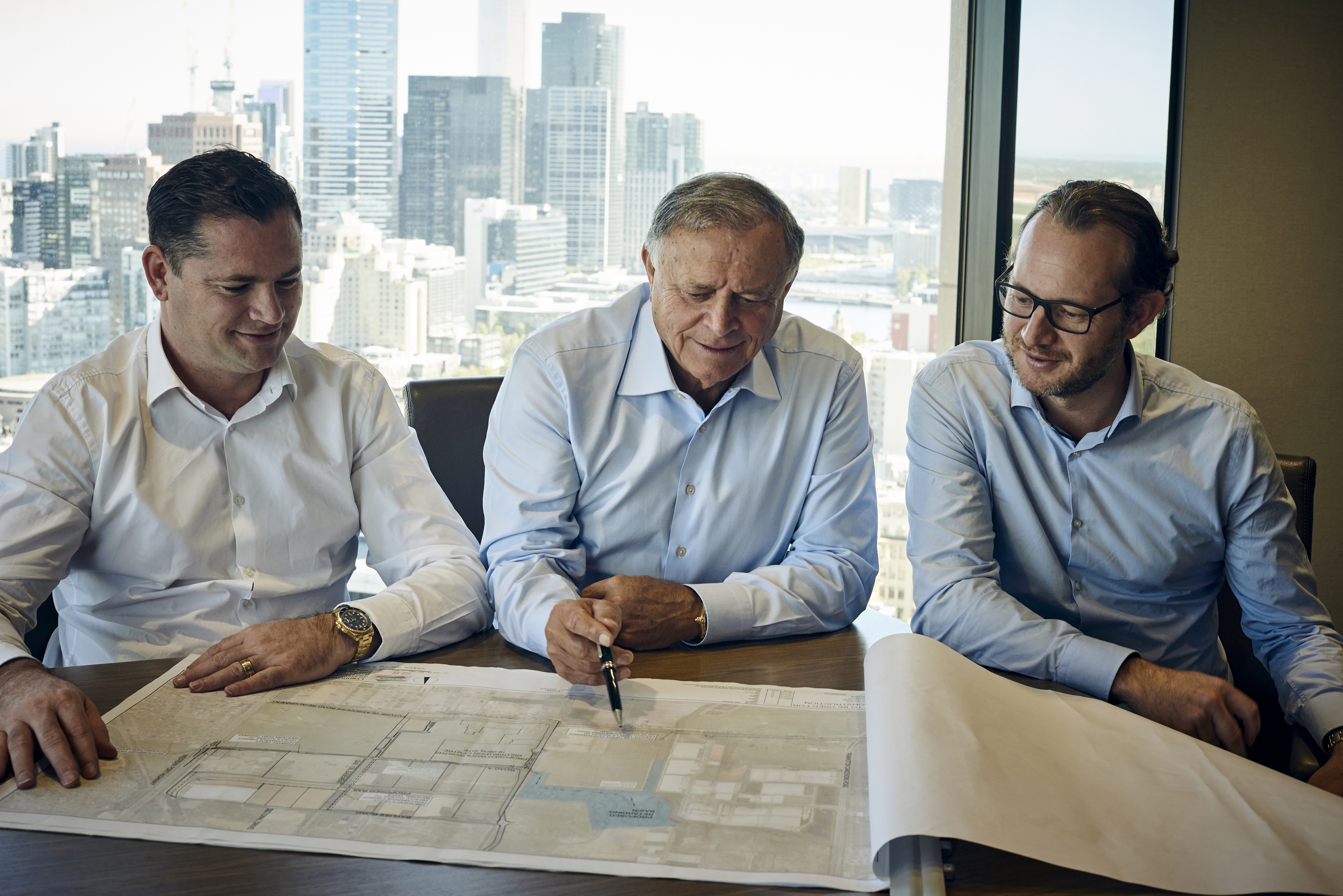
Salvatore Tarascio with his sons. Sam Tarascio, managing director of Salta Properties (left), and David Tarascio, CEO of Salta Capital
I ask him to clarify the rumours about his latest project related to Preston Market, the land he owns along with the Medich Corporation in Sydney.
His idea is to build three towers comprising 300 apartments and parking facilities:
“There is a rumour that we want to destroy Preston Market, but we don’t want to destroy it.
“What we want to do is to upgrade it. In effect, we want to turn into a European village - in Europe you have residential on top and retail at the bottom, and there is a communicating ability (like the piazza that brings all the people together).
“We have contracts with the government to redevelop Preston Station as well, not the rail work which is infrastructure but all the building around it.
“Now we’re waiting for the government to do work on the railway crossing and then we can integrate the market with the new station.
“So that’s another hold-up.
“There’s a fantastic shopping centre in Richmond called Victoria Gardens. We own that. We built it 15 years ago.
“It’s functioning really well, so we understand retail, we understand mixtures - when you mix retail with commercial, residential, and get it all to work together.
“And there’s a particular way to make it interact.
“Preston Market has a great future but there are lots of people who have issues with the project and are making it very difficult.”
From the child who arrived in Australia at the age of five without being able to express himself, to the young man who began to pronounce his surname in English (“Ta-ra-skee-oh”) in order to feel part of the society; from the precocious boy who sold water disguised in beer bottles to the man who built an empire thanks to his willpower.
There, from that child, from that boy and finally from Sam Tarascio, the man, I could only expect a cutting sincerity coupled with dogged conviction to be laid bare when he recalls his past. He did it also because in Australia, 50 years ago, there was much less competition.
Indeed, he still believes in the strength of this great continent, but younger Italian migrants will have to keep up with technology.
“Remember one thing: opportunities pass you by every day, but the ability to identify the opportunities is a natural skill.
“You get the same opportunities that I do, but I may see the opportunity.
“It’s like a ship sailing at night – comes through, goes past, if you don’t grab it, it just keeps going, it never comes back.
“If you want to enter the business world, you must know how to take risks.
“I never thought of working in the construction world, but today I am still here, after 50 years, in my office on Collins Street.”


